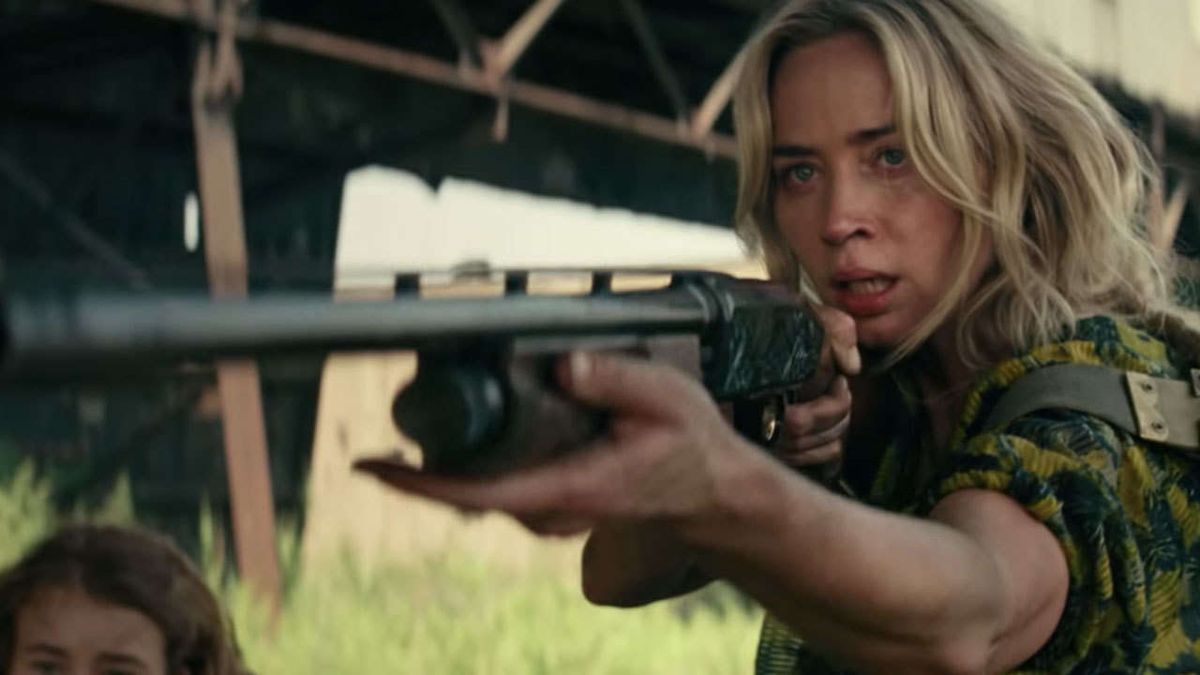12DOVE Verdict
Between Simmonds’ superb lead, the suspense, the slivers of hope, A Quiet Place Part II is worth making a noise for. Just pipe down in the cinema.
Why you can trust 12DOVE
In 2018, A Quiet Place arrived with surprise on its side. Arguably, Hereditary generated more pre-release noise that year. Few viewers suspected that Dunder Mifflin’s Jim had a kick-ass alien thriller in him, let alone one with such a strong, silent(-ish) conceptual hook. And who thought John Krasinski would dare deliver that pulverizing prologue, with its "Oh my god, you killed Beau" gut-puncher?
With expectations heightened by a COVID-enforced delay, the sequel lands with its work cut out. Yet against the odds, Part II manages to expand its predecessor’s world, realign its POV and develop its themes in controlled, satisfying ways, largely without losing its forerunner’s lean pitch and capacity to jolt. Tight (97 minutes) and often cruelly tense, it cuts as close to the original’s equal as might be expected, one or two stumbles aside.
Wrong-footing in the right way, the prologue drops us in just before the world turns to hell – and yes, the unintended resonances cannot help but sting. Krasinski’s Lee Abbott is alive, the traffic lights work, toys wait temptingly on pharmacy shelves (sob), kids play baseball and US flags billow nearby, all reminders of community-based certainties about to be eviscerated.
Krasinski clearly learned some tricks from Jaws, from the calm before the storm to the sky-rupturing terror itself. Last time round, the director/co-writer waited patiently to introduce his creatures. Now we know what they look like, he builds to their arrival steadily before grabbing the chance to let them rip, ramming home with every swing of their pick-axe limbs why the world stood no chance. Just as its predecessor cold-cocked us fast, so A Quiet Place Part II doesn’t faff about in the killer creature-feature stakes. The body count rockets...
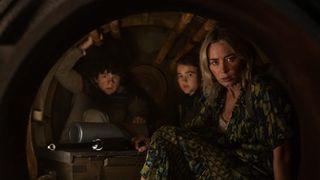
A 'Day 474' title card then takes us forward to where the predecessor left off, with Emily Blunt’s Evelyn, Millicent Simmonds’ Regan, Noah Jupe’s Marcus, and the baby-in-a-box leaving home. When things get suddenly, horribly worse before any chance of improving, the Abbotts take refuge with newcomer Cillian Murphy’s Emmett, whose complicated presence steers the story into a stand-off between despair and hope.
His faith and more lost, Emmett whispers panicky cautions about other, unsavory survivors. The prologue’s idyllic community has gone, he suggests, but Regan cries foul. When her brother intercepts a radio transmission (Bobby Darin’s ‘Beyond The Sea’, evoking Finding Nemo with added alien terror), she ventures out alone to locate the signal’s source, with plenty of character- and creature-based developments close behind.
As Krasinski executes a focus shift from parents to Nemo-esque kids flying the nest, the cast hierarchy evolves accordingly. Now center stage, Simmonds shoulders the strain gloriously. Summoning feelings of fear, sorrow, pique (“ENUNCIATE!”) and volcanic rage at a stroke, the young Deaf actor ably fulfills her promise in Ripley-esque reserves of survivalist grit and grounding vulnerability. In support, Murphy excels at ambiguity; Jupe is stretched in new ways; and Blunt’s high-wire balancing act of steel and dread weathers repeating.
As does Krasinski’s flair for world-building. In its quieter passages, A Quiet Place Part II milks tension through understated images. Shredded train carriages and high heels on a platform evoke a nation in shreds. Amid the nightmare, heartfelt character moments and grace notes (dust motes, a baby’s hand, a discarded ring at a key location) maintain a core of humanity, extremes complemented by Marco Beltrami’s characteristically tender, tumultuous score.
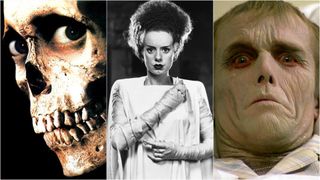
The best horror movie sequels of all time
As for the horrors themselves, Krasinski mostly avoids the bear trap of over-indulging our appetite for monster destruction. But even slight increases in scale do compromise the original’s focus and clarity at certain junctures, particularly during a mildly muddled waterside confrontation. Some specific, spoilery deaths are also problematic, leaving guest stars under-used. Meanwhile, the theme of survivors turned bad is a little under-developed and the rules of silence are faintly over-stretched; not fatally, but enough to release some air from the valve.
Happily, that valve is tightened again for the end stretch, where oxygen issues, Erik Aadahl’s sound mix (squeaking drawers, sliding doors…) and separation anxieties combine with the sense of something lethal just out of eyeshot to staple our senses to the screen. Like a less chirpy "Just keep swimming", "Just breathe" emerges as a well-chosen mantra. Once you’re locked in, the climactic pay-off is a multi-layered exercise in sustained suspense that comes peppered with impeccably paced jump shocks, at least one of which suggests time spent studying Jurassic Park alongside Jaws.
Otherwise, Part II stands as a careful consolidation and continuation of its parent film rather than a departure, with the heart and hope needed to keep us invested. And if you do occasionally wish it had cut the apron strings a little more, the final shot leaves a question hanging: would a killer Part III be too much to hope for?
More info
| Genre | Horror |
Kevin Harley is a freelance journalist with bylines at Total Film, Radio Times, The List, and others, specializing in film and music coverage. He can most commonly be found writing movie reviews and previews at 12DOVE.
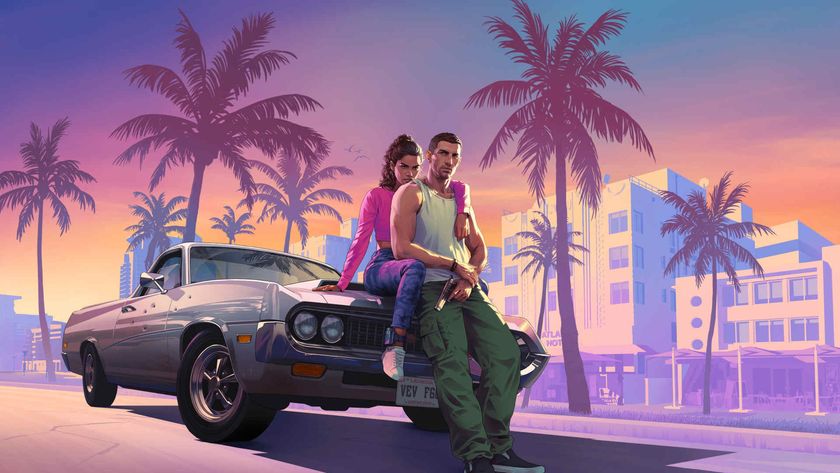
Ahead of GTA 6, Take-Two CEO says he’s “not worried about AI creating hits” because it’s built on recycled data: “Big hits […] need to be created out of thin air”
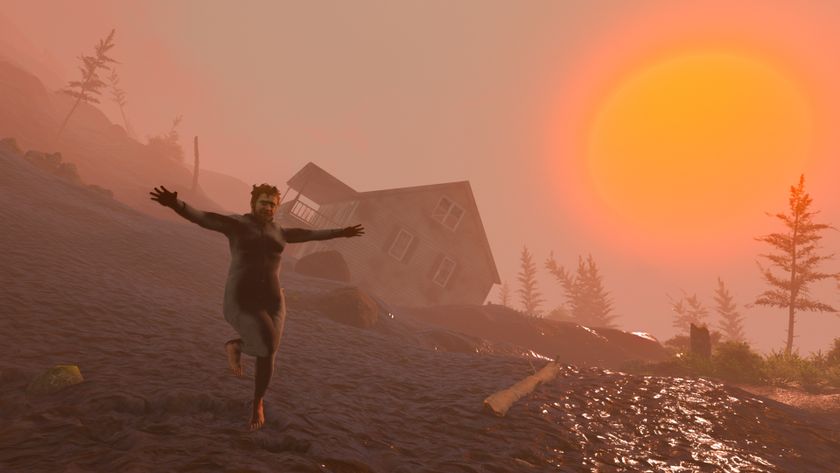
Getting Over It creator Bennett Foddy threatens the world once again: If you want Baby Steps to be a brutal rage game, "you can inflict that on yourself"

A Simpsons Hit and Run Remake will probably never happen – and I don't want it to
